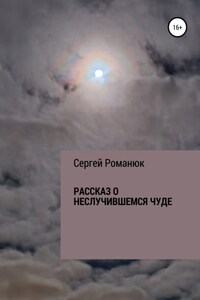“M’sieur Colin Trewinnard?”
“That is my name, Captain Stoyanovitch,” I replied in surprise. “You know it quite well.”
“The usual formality, mon cher ami!”
And the tall, handsome equerry in the white uniform of the Imperial Guard laughed lightly, clicked his heels together, and handed me a letter which I saw bore the Imperial cipher upon its black seal.
“From His Imperial Majesty the Emperor,” he added in Russian.
I held my breath. Had the blow fallen?
With eager, trembling fingers I tore open the envelope and found therein a note in French, merely the words:
“His Imperial Majesty the Emperor commands Mr Colin Trewinnard to private audience to-day at 3:30 p.m.
“St. Petersburg, June 28th.”
“Very well,” I managed to reply. “Tell Colonel Polivanoff that – that I shall be there. Have a cigarette?” and I handed him the silver box of Bogdanoffs which were the common property of the staff of the Embassy.
Having flung himself into a big easy chair, he stretched out his long legs and lit up.
“Well,” I said, leaning against the edge of the writing-table, “I suppose the Emperor returned from Odessa early this morning – eh?”
“Yes,” replied the elegant officer, in English. “Thank Heaven, the journey is at last over. Ah! what a tour of the Empire! At Orel we held the great review, then on to Saratov, where there were more manoeuvres and a review. Afterwards we went down the Volga to Astrakhan to unveil the new statue to Peter the Great; then Kertch, more manoeuvres, and into the Crimea for a week’s rest. Afterwards across to Odessa, and then, by a three nights’ journey, back here to Petersburg. Faugh! How we all hate that armoured train!”
“But it is surely highly necessary, my dear Stoyanovitch,” I said. “With this abominable wave of anarchism which has spread over Europe, it behoves the Secret Police to take every precaution for His Majesty’s safety!”
“Ah! my dear friend,” laughed the equerry. “I tell you it is not at all pleasant to travel when one expects every moment that the train will be blown up. One’s sleeping-berth, though covered with a down quilt, is but a bed of torture in such conditions.”
“Yes,” I said. “But His Majesty – how does he bear it?”
“The Emperor has nerves of iron. He is the least concerned of any of us. But, mon Dieu! I would not be in his shoes for the wealth of all the Russias.”
“What – more conspiracies?” I exclaimed.
“Conspiracies!” sighed the Captain. “Mon Dieu! A fresh one is discovered by the political police every week. Only the day before the Emperor left for the country he found among the Ministers’ daily reports upon the table in his private cabinet an anonymous letter telling him that he will meet with a tragic end on the sixth of the present month. How this letter got there nobody knows. His Majesty is seldom out of temper, but I never saw him so furiously angry before.”
“It is unfortunate,” I said. “Apparently he cannot trust even his immediate entourage.”
“Exactly,” answered the dark-haired handsome man. “The constant reports of General Markoff regarding the revolutionists must be most alarming. And yet he preserves an outward calm that is truly remarkable. But, by the way,” he added, “His Majesty, before I left the Palace with that letter, summoned me and gave me a message for you – a verbal one.”
“Oh! What was that?”
“He told me to say that he sent to you a word – let me see, I wrote it down lest I should forget,” and pulling down his left shirt cuff, he spelt:
“B-a-t-h-i-l-d-i-s.”
“Thank you,” I replied briefly.
“What does it mean? Is it some password?” Ivan Stoyanovitch asked with considerable curiosity.
“That’s scarcely a fair question,” I said in rebuke.
“Ah! of course,” he replied, with a touch of sarcasm. “I ought not to have asked you. Pardon me, my friend. I forgot that you enjoy His Majesty’s confidence – that – ”
“Not at all,” I protested. “I am but a humble attaché of a foreign Embassy. It is not likely that I am entrusted with the secrets of Russia.”
“Not with those of Russia, but those of the Emperor personally. Dachkoff was discussing you at the Turf Club one night not long ago.”
“That’s interesting,” I laughed. “And what had the old man to say?”
“Oh, nothing of a very friendly nature. But, you know, he never has a good word to say for anybody.”
“Gamblers seldom have. I hear he lost ten thousand roubles to Prince Savinski at the Union the night before last.”
“I heard it was more,” and the long-legged equerry leaned back his head and watched the blue rings of cigarette smoke slowly ascend to the ceiling of the room, through the long window of which was a view across the Neva, with the grim Fortress of Peter and Paul opposite. “But,” he went on, “we were speaking of these constant conspiracies. Though we have been back in Petersburg only a few hours, Markoff has already reported a desperate plot. The conspirators, it seems, had bored a tunnel and placed a mine under the Nevski, close to the corner of the Pushkinskaya, and it was arranged to explode it as the Emperor’s carriage passed early this morning on the way from the Nicholas station. But Markoff – the ever-watchful Markoff – discovered the projected attempt only at eleven o’clock last night – two hours before we passed. There have been thirty-three arrests up to the present, including a number of girl students.”














